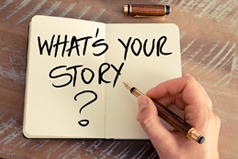Some Frequently Asked Questions
How do I contact other members on-line or via the phone?
There are active online and phone CoDA meetings whose members give each other support and have on-line opportunities for fellowship. Go to the ‘Find A Meeting’ page and choose ‘Online Meetings’ or ‘Phone Meetings’, then search among the multiple offerings for a day, time and even the language that meets your needs.
How do I get a sponsor on-line?
Attend alternative (phone, Skype, email) meetings and use the same process as with a face to face meeting. That involves listening to others share at a meeting, sharing with them one on one after the meeting, finding people whose recovery you respect and asking them to sponsor you. On the Fellowship Service Materials page, there is a free downloadable pamphlet about sponsorship, Sponsorship in CoDA. The Newcomer’s Handbook and the Sponsorship pamphlet both have valuable information about sponsorship. Click to purchase the Newcomers Handbook and Sponsorship pamphlet
Is there a CoDA chat room?
Chat room meetings that have registered with CoDA are listed under ‘Online Meetings, on the ‘Find A Meeting’ page. Click here to see Online Meetings
Where is there a meeting in my area?
Go to the ‘Meetings’ page of CoDA.org. If you find nothing nearby on a specific search, you have several options, from making your search more general by leaving off the zip code or city, for example, or looking at the whole country or state to find something close to you. In addition, please consider investigating phone and online meetings.
I know someone else who needs CoDA.
Part of our Twelfth Step is to try to carry the message of recovery to other codependents.
First, you may want to share your own experience, strength and hope. Share your story about what your codependency was like and how CoDA has helped.
Second, you may want to share free, downloadable information about what CoDA is and where to find a meeting by referring the person to this website or giving them a copy of the pamphlets “Am I Codependent?” or “What is CoDA?” or even by offering to take them to your CoDA meeting so they can see what it’s like.
Third, after you have shared your story and offered information, then let it go. Our First Step reminds us that we are powerless over others. We can’t make someone else try CoDA no matter how badly they may seem to need it. If you find that your sense of serenity and well-being is shaken, that you are obsessed with this other person’s codependency, then your own codependency is being triggered and that won’t be fixed by trying to get someone else into CoDA. Try working Steps One through Four on the situation, then call your sponsor or someone you trust in the program and do a Step Five. You may find your own recovery growing deeper through all this, and that is the greatest Twelfth Step message we can have.
I need advice...
Giving advice or on-line support is not the purpose of the website or any of the volunteers whose emails or phone numbers appear on the website. Maybe you could go back to the Meeting Resource Center and find a meeting near you and attend. Then you can begin to work the program, which may be your solution.
Working the program has given CoDA members the tools to handle difficult situations. Maybe working the program will lead you to the same tools.
My situation is...
Regardless of your situation, your first step is to go to a meeting. Go to at least 6 meetings before you decide whether you can get what you need in CoDA. Meetings are like people, they have different personalities. Try different meetings to find one with which you can relate. Read CoDA literature and Keep Coming Back.
Where can I get information about CoDA?
In addition to CoDA meetings and CoDA literature, there are several email lists that you can sign up to receive, at the ‘Email Signup’ button.
I am researching codependency. How do I get more information?
We are a Twelve Step program, there for those who suffer. CoDA’s purpose is to carry the message of recovery from codependency. We do not support specific research projects.
We suggest that reading the book Co-Dependents Anonymous, and other materials published by CoDA, where you will learn about the experience, strength and hope of many CoDA members.
I need phone numbers as a resource for a help line.
CoDA does not offer a crisis line but it does provide two national (US) phone lines, English (888) 444-2359 and Spanish (888) 444-2379 as well as email responses to questions, English at [email protected] and Spanish at [email protected]. CoDA members volunteer to answer these calls and emails to provide information to get callers to a meeting.
The phone numbers that are provided in the meeting lists are there to give callers sufficient information to get to that meeting. After that, it is up to the individual to get his or herself to a meeting, work the program and Keep Coming Back.
What do all these abbreviations mean???
Definitions of Co-Dependents Anonymous initials, abbreviations and acronyms can be found here: Glossary
For New CoDA Groups
Can I copy CoDA endorsed literature?
CoDA does not allow copying of CoDA endorsed literature, excepting those pamphlets that are available for free download, from the Fellowship Service Materials page of the Meeting Materials page at CoDA.org
What is CoDA-approved literature? Where do I get it?
CoDA approved (endorsed) literature has been created by CoDA members and approved at a CoDA Service Conference. You can find that literature on the ‘Buy Literature’ page at CoDA.org.
Can my group use non-CoDA Service Conference endorsed literature?
A wide variety of literature has been developed by people in CoDA, for example, the Newcomer’s Handbook, the Twelve Step Handbook, Co-Dependents Anonymous (the CoDA Book) and the Twelve Step and Twelve Tradition Workbook, as well as numerous pamphlets on Sponsorship, Boundaries, and Communications. Click here to purchase that literature.
Although many people find non-CoDA literature to be personally helpful, CoDA suggests the use of CoDA literature in meetings as described on page 4 in the CoDA pamphlet, Building CoDA Community: Healthy Meetings Matter:
“CoDA Conference endorsed literature is written by CoDA members for CoDA members. It includes any written or audio material created by members of Co-Dependents Anonymous that is approved by the CoDA Service Conference (CSC) using the group conscience process. Since “Anonymity is the spiritual foundation of all our Traditions” (Tradition Twelve), all CoDA literature is published anonymously. The use of CoDA literature supports Tradition One by uniting the Fellowship and Tradition Five by carrying a consistent message of hope to still suffering codependents.
“Sharing focused on the Steps, Traditions, and topics found in CoDA literature helps members grow together in the program. Many CoDA groups use our basic text, Co-Dependents Anonymous, informally known as “The CoDA Book,” and/or the In This Moment Daily Meditation Book during meetings. Other popular titles are the Twelve Steps & Twelve Traditions Workbook, Twelve Steps Handbook, Newcomers Handbook, and Experiences in Crosstalk.
“By making our collective experience, strength, and hope available to all members, Conference endorsed literature benefits the Fellowship. Reading CoDA literature between meetings helps build a sense of connection to the program. A well-stocked literature table creates a sense of CoDA’s history and provides a wealth of recovery materials on a wide range of CoDA topics.
The sale of CoDA literature helps CoDA remain “fully self-supporting,” as stated in Tradition Seven.
“The CoDA Literature Committee (CLC) encourages new projects that fill a need in CoDA’s inventory of literature. Ideas for new topics are passed along from individual meetings to the CoDA Service Conference (CSC) through their Voting Entity, or by direct submission to [email protected].”
There are many of us who have found a variety of non-CoDA literature out there that has touched our lives and enhanced our recovery. Each of us is free to choose and read as much of it as we want to, on our own. If there is something that really touches us that we would like to share about at the meeting, we can share our experience of what we read as it has become part of our own recovery. Each of us finds our own personal path to recovery, but what we share in common at CoDA meetings is the CoDA program. We have time and freedom to explore and share many different facets of our recovery before and after meetings, but our time in a CoDA meeting is our time to focus on the principles of CoDA.
Each meeting is autonomous and may choose, through the group conscience process, to use non-CoDA literature, provided that it be clearly stated, before and after the reading of such literature, ‘This is not CoDA-endorsed literature.’ This will prevent confusion between CoDA Conference-endorsed literature and commercial literature on codependence.
Our meeting voted to work the Twelve Traditions Where can we find more information?
In addition to an in-depth book, the Twelve Steps and Twelve Traditions Workbook, there are also pamphlets on this topic: Using the Twelve Traditions and The Twelve Piece Relationship Toolkit. These will all enhance your understanding of the Traditions. Please visit the ‘Store’ page of CoDA.org to order any, or all, of these titles.
How Do I Start a Meeting?
It is helpful that the people wishing to start a new meeting have a group conscience to decide on the time, the place and the format as well as the group’s name. All it takes to start a meeting is a place, a time, and a few people willing to commit to the meeting for the first 6 months. Healthy service is shared, which is the reason that CoDA does not recommend that a single individual start a meeting. For detailed suggestions on meeting topics and suggested formats, consult Part Two of the Fellowship Service Manual, the Meeting Handbook. The Handbook includes a meeting format that can be adapted to individual meeting needs. CoDA recommends that every meeting have a copy of this packet. It contains the basic documents that support CoDA unity and can be downloaded for free from the CoDA website, www.coda.org.
The New Meeting Contacts list is a way to connect with people who are interested in starting a meeting in a specific country, state or area.
Where to start a meeting?
Meetings can be held almost anywhere. Try area churches, synagogues, counseling centers, hospitals or places where other groups meet. Though each group is autonomous, for reasons of safety and anonymity, CoDA cautions about holding meetings in individual homes. When choosing a meeting place, please keep in mind personal safety.
Why Register Your Meeting?
Registering your meeting insures that newcomers as well as other members of the fellowship can find your meeting online and attend.
How do I update a meeting?
To update a meeting, go to the Meeting page. Enter the meeting number in the field labeled “Meeting ID” and click Start Search. Or search for your meeting by city, language, state or country. When you find your meeting, click on the meeting number. Under the map on the right side there is an Update This Meeting link. Click on the link and the Update Page will open. Update the field(s) to be changed and enter your email address and title at the bottom of the page. Our Fellowship Service Worker will review your changes. Please allow a couple of weeks for changes to appear on the website.
About how long may it take for an update or a registration?
The Meeting Update Form does not automatically update the database. It sends an email to the Administrative Assistant who inputs the changes. The Administrative Assistant is a part time worker. Please be patient and allow a couple of weeks before inquiring about your meeting’s updated status. If you have not received a response after a couple of weeks, send an email to [email protected], who will assist you. Please allow additional time for updates that are submitted by mail.
Can our group use the Co-Dependents Anonymous, Inc. Tax ID Number?
No.
The CoDA Tax ID Number, also known as the Employer Identification Number (EIN) is not for use by any other level of CoDA except the corporate level.
Why?
The Co-Dependents Anonymous, Inc. Employer Identification Number is specific to the corporation of CoDA, a US corporation. Having an “umbrella” tax status would require that each group submit all the identifying information of their officers to CoDA for the official record. In addition, CoDA would be responsible for the groups’ financial reporting and financial activity. We would have to establish a system of controls over the finances of each CoDA group, intergroup/community, and Voting Entity or regional service board. We would somehow have to ensure the use of all income solely for CoDA purposes and require regular reports to some central CoDA organization which would account to tax authorities for the activities of Co-Dependents Anonymous, Inc. All of this conflicts with our Traditions of anonymity, group autonomy and our service structure. For this reason we recommend that each meeting group, intergroup/community, or Voting Entity organization assess its own need for a Tax ID # /EIN and if necessary, apply for its own.
Does Co-Dependents Anonymous Inc. (CoDA) have an "umbrella" insurance policy that would cover our meeting?
No
CoDA does not have an umbrella insurance policy that covers individual meetings. Intergroups or meetings may organize and purchase their own insurance.
Options that have worked:
- Asking the facility administrator whether their insurance company could provide the needed coverage for an added fee or for free.
- Moving the meeting to a facility that doesn’t request additional insurance. Government facilities often do not require additional insurance.
- Forming an Intergroup, association or consortium and investigate purchasing a group policy. The geographic area covered will depend upon the resources of the broker involved.
- Signing waivers in lieu of insurance. This might lead to personal liability for group members. Outside legal advice about such matters is recommended.
What is the “Thirty Second Rule”?
“Occasionally, a member(s) may engage in unsafe behavior by not respecting the boundaries of others, or someone may perceive that to happen. In such a situation, any member may call for a “time out” or “thirty seconds.” During a time out or thirty seconds, everyone ceases talking and spends time seeking guidance from Higher Power. At the end of the thirty seconds, someone calls “time and members may choose to say the Serenity Prayer before resuming the meeting.” –Disagreement, Mediation, and Resolution, page 1
How do I get involved in service?
There are many ways to be involved, from the local meeting to the intergroup, Voting Entity and CoDA World. Service includes setting up for a meeting, leading meetings and representing your group at the local community, group or Voting Entity. If you are a writer, please submit a recovery story to Co-NNections or a longer piece to the CoDA Literature Committee. Take a look at the different committees listed on the website and follow up with one that seems interesting. As at the group level, each service position has a term limit to insure healthy rotation of service in CoDA.





Recent Comments